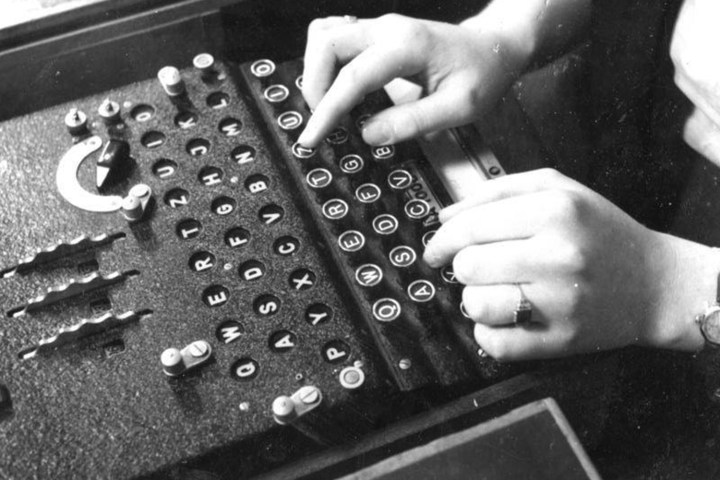
Designed during World War II for the German Navy, the M4 Naval Enigma Machine was exclusively used by Nazi commanders to cryptically communicate with the U-boat fleet. The M4 was introduced in 1942 after German Navy Admiral Karl Doneitz became suspicious that the Naval M3’s security had been compromised by the Allies. Between 1942 and 1945, roughly 1,600 M4’s were constructed, according to Bonhams, with the majority being destroyed or lost at sea during the war.
The fully operational artifact sold yesterday dates back to 1943. Its good condition suggests it was probably operated from a base on the shore rather than within a U-boat.
“This M4 Enigma was in perfect condition and very desirable,” Bonhams Science and Technology specialist Tom Lamb said in a press release. “Most of the 120 or so M4 Enigma machines known to have survived are in museums or in government hands so this was a rare chance to acquire one of the very few still available. I am, of course, delighted to have broken our own world record.”
The machine was acquired by the Enigma Museum from a family in Norway.
Nazi Enigma Machines are perhaps most famous for the man who helped crack them, a young cryptographer named Alan Turing who would become the father of modern day computer science and artificial intelligence. Turing and his colleagues developed sophisticated techniques, along with some of the earliest computers, in order to unravel the Engima’s ciphers, giving Allied forces intel into Nazi plans.






